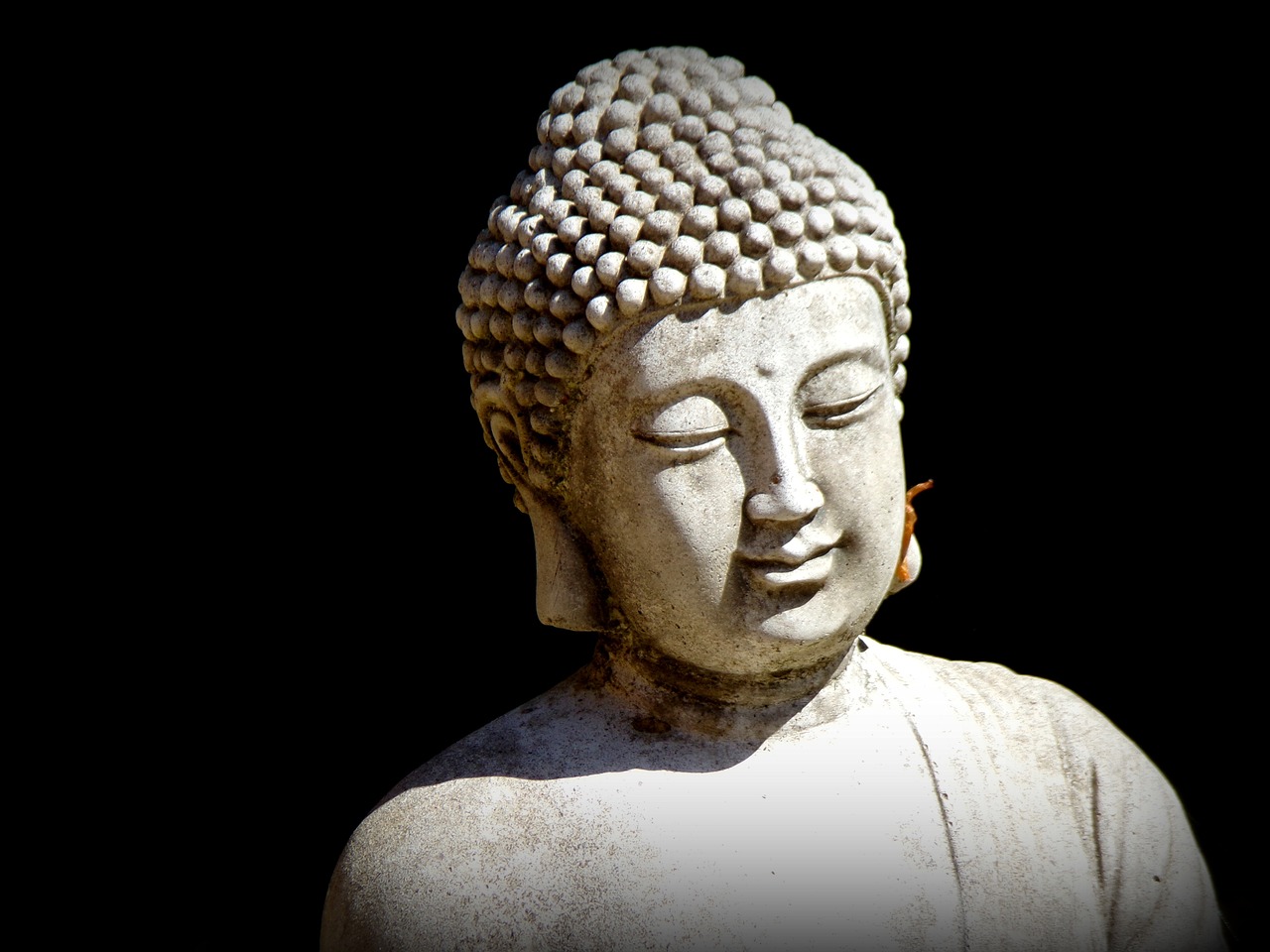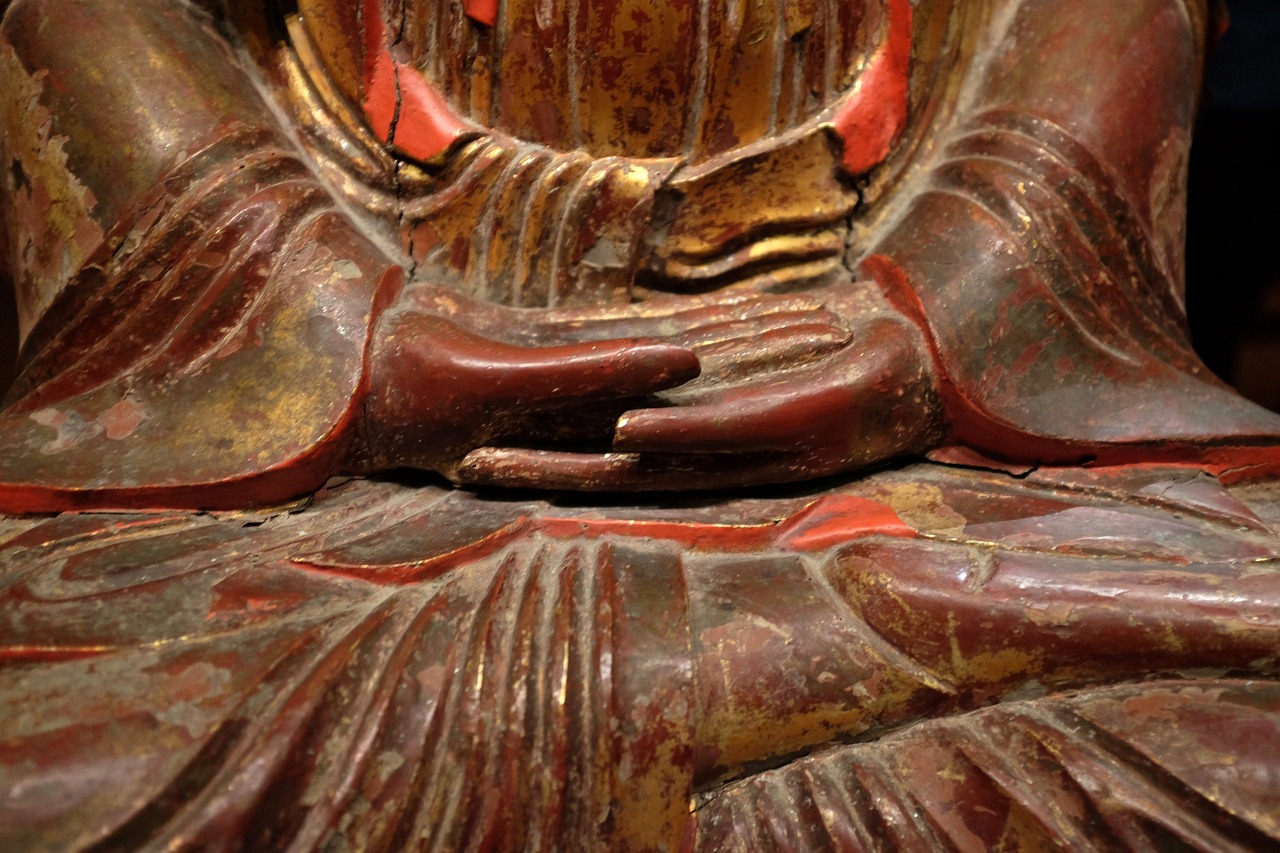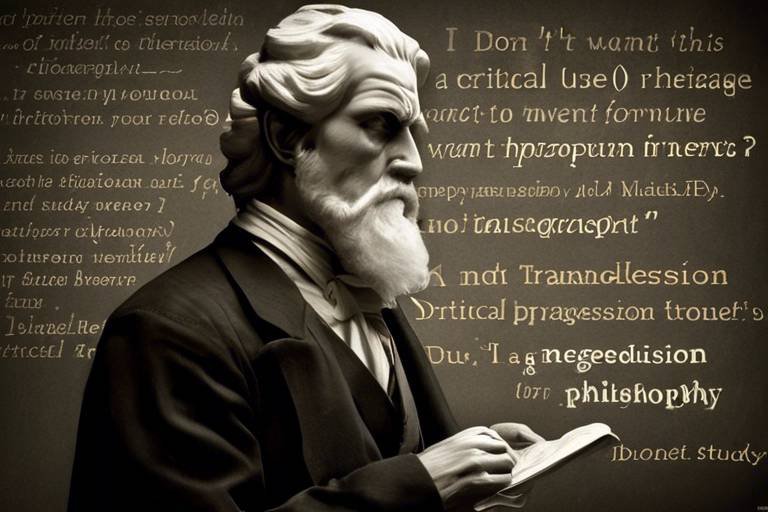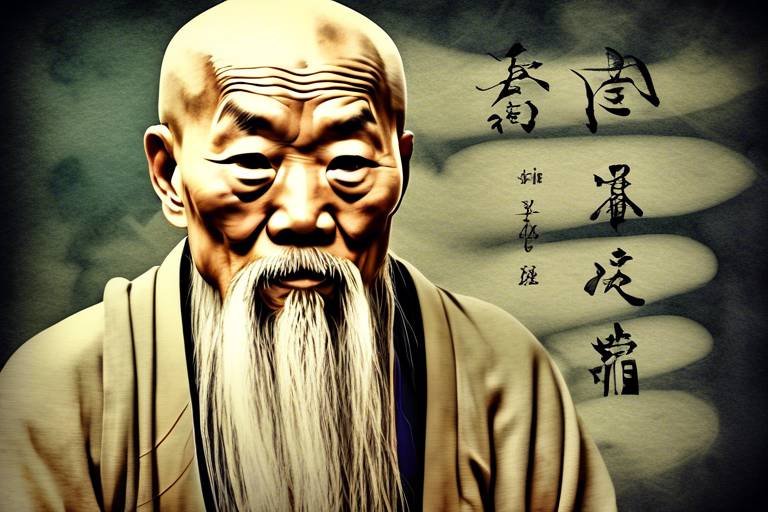Pre-Socratic Philosophy and its Significance
Pre-Socratic philosophy marks a transformative period in the evolution of human thought, serving as the bedrock upon which Western philosophy is built. Emerging in ancient Greece before Socrates, these early thinkers dared to question the nature of existence, reality, and the cosmos. They ventured beyond mythological explanations, seeking instead to understand the world through reason and observation. This shift not only laid the groundwork for future philosophers but also influenced various fields such as science, ethics, and metaphysics, echoing through the ages to our modern understanding of the universe.
The significance of Pre-Socratic philosophy lies in its bold inquiries that paved the way for rational thought. Thinkers like Thales, Anaximander, and Heraclitus explored profound questions about the origins of matter, the essence of change, and the unity of existence. Their ideas challenge us to consider fundamental concepts: What is the nature of reality? Can we find a unifying principle in the chaos of existence? These questions remain relevant today, as they touch upon the core of human experience and understanding.
Delving into the contributions of these early philosophers reveals a rich tapestry of thought. For instance, Thales' assertion that water is the fundamental substance of all things not only sparked discussions on the nature of matter but also encouraged a systematic approach to inquiry. Similarly, Heraclitus' famous declaration that "everything flows" invites us to ponder the dynamic nature of reality, emphasizing that change is the only constant in life. Such insights have profound implications, influencing not just philosophical discourse but also shaping the trajectory of scientific exploration.
As we explore the legacy of Pre-Socratic thinkers, we find that their ideas resonate across various domains. Their explorations of ethics and human existence challenge us to contemplate our moral framework and our place in the universe. By questioning the nature of being and the essence of change, they laid the foundation for later ethical theories that continue to inform our understanding of morality today.
In summary, Pre-Socratic philosophy is not merely a historical footnote; it is a vital chapter in the story of human thought. The inquiries and insights of these early philosophers continue to inspire and provoke, reminding us that the quest for knowledge and understanding is a timeless endeavor. As we navigate the complexities of modern life, their legacy serves as a guiding light, encouraging us to embrace curiosity and seek answers to the profound questions that define our existence.
- What is Pre-Socratic philosophy?
Pre-Socratic philosophy refers to the early Greek thinkers who explored fundamental questions about existence and reality before the time of Socrates.
- Who were the key figures in Pre-Socratic philosophy?
Notable figures include Thales, Anaximander, and Heraclitus, each contributing unique perspectives on the nature of reality.
- Why is Pre-Socratic philosophy important?
It laid the groundwork for Western philosophy, influencing various fields such as science, ethics, and metaphysics.
- How did Pre-Socratic philosophers differ from their predecessors?
Unlike their mythological predecessors, Pre-Socratic philosophers sought explanations based on reason and observation.

Origins of Pre-Socratic Thought
The Pre-Socratic philosophers emerged in a fascinating period of ancient Greek history, a time when the world was transitioning from mythological explanations of existence to more rational and systematic approaches. This shift was not merely a change in thought but a revolution that laid the groundwork for Western philosophy as we know it today. The cultural and intellectual landscape of ancient Greece was rich and diverse, influenced by various factors including geography, trade, and the mythological traditions that dominated the early Hellenic worldview.
In this vibrant environment, thinkers began to question the nature of reality, existence, and the universe itself. The Pre-Socratic philosophers sought to understand the underlying principles of the cosmos without relying on the gods or mythological stories. They were the first to ask profound questions such as: What is the essence of all things? and What is the nature of change? This intellectual curiosity marked a significant departure from previous thought, steering humanity toward a more empirical and philosophical inquiry.
One of the key influences on Pre-Socratic thought was the geographical context of ancient Greece. The Greeks were surrounded by the Mediterranean Sea, which facilitated trade and cultural exchange with neighboring civilizations such as Egypt and Mesopotamia. This interaction brought exposure to various ideas and scientific knowledge, enriching the intellectual atmosphere. Moreover, the city-states of Greece, each with their own unique customs and beliefs, fostered a competitive spirit that encouraged innovation in thought.
Another significant factor was the mythological tradition itself. While the Pre-Socratic philosophers sought to move beyond myth, they were undoubtedly shaped by it. The stories of gods and heroes provided a backdrop against which they could contrast their rational inquiries. For instance, while earlier thinkers might attribute natural phenomena to divine intervention, the Pre-Socratics began to look for natural explanations based on observation and reason.
As these early philosophers ventured into uncharted intellectual territories, they established a framework that would influence generations to come. They laid the groundwork for future fields of study, including science, ethics, and metaphysics. Their inquiries into the nature of existence and the cosmos set the stage for the great philosophers that followed, such as Socrates, Plato, and Aristotle. In essence, the Pre-Socratic period can be seen as the crucible of Western thought, where the seeds of inquiry were sown, leading to a rich tradition of philosophical exploration.
In summary, the origins of Pre-Socratic thought were deeply rooted in the complex interplay of cultural, geographical, and intellectual influences of ancient Greece. This period marked a pivotal shift from mythological to rational explanations of the universe, paving the way for a legacy that continues to resonate in our understanding of philosophy, science, and ethics today.

Key Pre-Socratic Philosophers
The Pre-Socratic era was a vibrant period in ancient Greek philosophy, characterized by a shift from mythological explanations of the world to rational inquiry and critical thinking. This transformation was spearheaded by a group of thinkers who laid the groundwork for Western philosophy. Among these pioneers, Thales of Miletus, Anaximander, and Heraclitus stand out for their revolutionary ideas and unique perspectives on existence and reality.
Thales of Miletus, often hailed as the first philosopher, made significant contributions by proposing that water is the fundamental substance of all things. This idea not only challenged the prevailing mythological views but also set the stage for future philosophical inquiry. Thales believed that everything originated from a single source, which he identified as water, and he demonstrated an early understanding of natural phenomena. His cosmological theories marked a pivotal moment in the transition from myth to reason.
Anaximander, a student of Thales, expanded on his mentor's ideas by introducing the concept of the apeiron, or the boundless. He argued that the universe is governed by a principle that is infinite and eternal, transcending the physical elements known to humanity. Anaximander's exploration of the cosmos led him to propose early theories of evolution, suggesting that human beings evolved from simpler life forms. His thoughts on the nature of existence and the infinite nature of reality continue to resonate with modern scientific discourse.
Heraclitus, another key figure, is best known for his doctrine of change, famously asserting that "everything flows." He believed that the universe is in a constant state of flux, and that stability is an illusion. Heraclitus emphasized the importance of opposites, suggesting that conflict and change are essential to the harmony of the cosmos. His views on the nature of reality challenge us to reconsider our understanding of permanence and existence, making him a vital thinker in the Pre-Socratic tradition.
These philosophers, along with others, such as Pythagoras and Parmenides, contributed to a rich tapestry of thought that explored fundamental questions about existence, reality, and the nature of knowledge. Their ideas not only influenced subsequent philosophers but also laid the groundwork for various fields, including science, ethics, and metaphysics. The Pre-Socratic philosophers, through their innovative approaches and profound insights, invite us to engage with the mysteries of existence and to seek understanding beyond the surface of our everyday experiences.
| Philosopher | Key Contribution | Philosophical Focus |
|---|---|---|
| Thales of Miletus | Water as the fundamental substance | Cosmology and metaphysics |
| Anaximander | The concept of the apeiron | Infinity and evolution |
| Heraclitus | Doctrine of change | Flux and opposites |
As we delve deeper into the thoughts and ideas of these remarkable thinkers, we uncover not just their individual contributions, but also the interconnectedness of their philosophies. Each philosopher, through their distinct lens, offers insights that challenge us to rethink our understanding of the universe and our place within it. The legacy of Pre-Socratic philosophy is a testament to the enduring quest for knowledge and the human spirit's desire to understand the world around us.
- What is Pre-Socratic philosophy? Pre-Socratic philosophy refers to the early Greek thinkers who explored fundamental questions about existence, reality, and the nature of knowledge before Socrates.
- Who were the key Pre-Socratic philosophers? Some of the most notable Pre-Socratic philosophers include Thales of Miletus, Anaximander, and Heraclitus, each contributing unique perspectives to philosophical thought.
- Why is Pre-Socratic philosophy important? Pre-Socratic philosophy is significant because it marks the transition from mythological explanations of the world to rational inquiry, laying the groundwork for Western philosophy and science.

Thales of Miletus
Thales of Miletus, often hailed as the **first philosopher** in Western history, was a remarkable figure whose ideas laid the groundwork for many subsequent philosophical inquiries. Born around 624 BCE in the ancient Greek city of Miletus, Thales was not only a thinker but also a mathematician and astronomer. His most famous assertion—that **water** is the fundamental substance of all things—marks a pivotal moment in the evolution of human thought. This was a radical departure from the mythological explanations of the world that prevailed during his time. Thales dared to suggest that a single, tangible element could be the source of all existence, a concept that would echo throughout the ages and influence countless thinkers.
Thales believed that everything in the universe originated from water. This belief wasn't merely a whimsical speculation; it was rooted in his observations of nature. For instance, he noted how water exists in various forms—liquid, solid (ice), and vapor (steam)—and how it is essential for life. This understanding led him to propose that all matter is interconnected, a notion that resonates with modern scientific thought. Imagine for a moment the vastness of the ocean, the life it sustains, and its ability to transform; Thales saw in this a reflection of the universe itself—a dynamic, ever-changing entity.
Moreover, Thales' influence extended beyond philosophy into the realms of **science and mathematics**. He is credited with several mathematical discoveries, including the concept that a circle is bisected by its diameter. His work laid the foundation for geometry, which would later be formalized by Euclid. Thales also made significant strides in astronomy, predicting solar eclipses and studying the stars. His approach was groundbreaking; instead of attributing celestial events to the whims of gods, he sought natural explanations, a hallmark of scientific inquiry.
To better understand Thales' contributions, let's look at a few key aspects of his philosophy:
| Aspect | Description |
|---|---|
| Fundamental Substance | Thales posited that water is the essence of all things. |
| Mathematical Contributions | Introduced concepts in geometry, such as the properties of triangles. |
| Astronomical Insights | Predicted eclipses and studied celestial bodies rationally. |
In sum, Thales of Miletus was not just a philosopher; he was a visionary who sought to explain the world through reason and observation. His legacy is profound, influencing not only the field of philosophy but also the development of science and mathematics. By shifting the focus from mythology to rational thought, Thales paved the way for future generations to explore the mysteries of existence in a more systematic and empirical manner.

Thales' Cosmology
Thales of Miletus, often hailed as the father of Western philosophy, introduced a revolutionary way of thinking about the universe that was grounded in observation and rational thought rather than mythology. His cosmology is fascinating, as it represents one of the earliest attempts to explain the world around us through natural principles. Thales proposed that water is the fundamental substance of all things, suggesting that everything in existence is derived from this single element. Imagine for a moment, if you will, that the entire universe is like a vast ocean, with water as its essence—this metaphor captures the essence of Thales' groundbreaking ideas.
In his quest to understand the cosmos, Thales ventured beyond the traditional narratives that dominated ancient Greek thought. He sought to uncover the underlying principles that govern natural phenomena, which was a significant departure from the mythological explanations that were prevalent at the time. For instance, instead of attributing the changing seasons to the whims of gods, Thales aimed to explain these cycles through observable natural processes. This shift towards rational inquiry laid the groundwork for future philosophers and scientists, making Thales a pivotal figure in the history of thought.
Thales' cosmology is not just about the element of water; it also encompasses his ideas about the universe's structure and the nature of reality. He believed that everything is interconnected, and this notion of unity amidst diversity is a recurring theme in Pre-Socratic philosophy. To illustrate this, consider the following key points that highlight Thales' contributions to cosmology:
- Unity of Substance: Thales posited that all things share a common origin in water, suggesting a fundamental unity in the diversity of existence.
- Natural Explanations: He emphasized the importance of rational explanations for natural phenomena, moving away from mythological interpretations.
- Interconnectedness: Thales viewed the universe as an interconnected whole, where changes in one part could affect others, a concept that resonates with modern ecological thinking.
Moreover, Thales' influence extends beyond philosophy into the realms of mathematics and astronomy. He is credited with several mathematical discoveries, including the concept of similar triangles and the ability to predict solar eclipses. These contributions not only demonstrate his analytical skills but also reflect his belief in the importance of observation and measurement in understanding the cosmos.
In summary, Thales' cosmology represents a monumental shift in human thought. By prioritizing rational inquiry and seeking natural explanations for the phenomena around him, he set the stage for future philosophers and scientists to explore the universe with a critical eye. The implications of his ideas continue to resonate today, reminding us of the power of inquiry and the quest for knowledge that defines the human experience.
- What was Thales' main contribution to philosophy? Thales is credited with introducing the idea that water is the fundamental substance of all things, marking a significant shift from mythological to rational explanations of the universe.
- How did Thales influence later thinkers? Thales' emphasis on rational inquiry and natural explanations laid the groundwork for subsequent philosophers, including Socrates and Aristotle, shaping the trajectory of Western philosophy.
- What is the significance of Thales' cosmology today? Thales' ideas about unity and interconnectedness continue to influence modern scientific thought, particularly in fields like ecology and systems theory.

Thales' Influence on Science
Thales of Miletus, often hailed as the father of Western philosophy, made significant strides in the realm of science that resonate even today. His approach to understanding the world marked a pivotal shift from mythological explanations to rational inquiry. Imagine a time when the cosmos was viewed through a lens of gods and legends; Thales challenged this notion by advocating for a more empirical and observational approach. He posited that water is the fundamental substance of all things, a radical idea that not only laid the groundwork for future scientific exploration but also encouraged a mindset that sought natural explanations for phenomena.
One of the most fascinating aspects of Thales' influence on science is his emphasis on observation and reasoning. He believed that by studying the natural world, one could uncover the underlying principles governing it. This idea is akin to a detective piecing together clues to solve a mystery. Thales encouraged thinkers to look beyond the surface, prompting them to ask questions such as:
- What is the essence of matter?
- What are the laws that govern natural phenomena?
- How can we predict the behavior of the universe?
Thales' contributions to geometry and astronomy are particularly noteworthy. He is credited with several geometric principles, including the concept that a circle is bisected by its diameter. This foundational understanding paved the way for later mathematicians to explore more complex theories and applications. In astronomy, Thales was one of the first to predict a solar eclipse, showcasing his ability to apply mathematical concepts to real-world phenomena. His work in these areas laid the groundwork for future scientists and mathematicians, establishing a legacy that persists in modern disciplines.
Moreover, Thales' influence can be seen in the way scientific inquiry evolved over the centuries. His insistence on rational thought and empirical evidence inspired later philosophers and scientists, such as Aristotle and Archimedes, to delve deeper into the mysteries of the universe. Thales' legacy serves as a reminder of the importance of questioning the status quo and seeking knowledge through observation and reason. Without his pioneering spirit, the path of science might have remained mired in superstition and unfounded beliefs.
In conclusion, Thales of Miletus not only transformed the landscape of philosophy but also set the stage for the scientific revolution. His ideas continue to inspire curiosity and a quest for knowledge, encouraging us to explore the world around us with a critical eye. The essence of his influence can be summarized in the belief that understanding the natural world through science is not just an intellectual pursuit, but a fundamental aspect of human existence.
- Who was Thales of Miletus? Thales was an ancient Greek philosopher, mathematician, and astronomer, often regarded as the first philosopher in Western history.
- What is Thales known for? He is known for proposing that water is the fundamental substance of all things and for making significant contributions to geometry and astronomy.
- How did Thales influence science? Thales encouraged a shift from mythological explanations to rational inquiry, laying the groundwork for future scientific thought and methods.
- What impact did Thales have on mathematics? Thales contributed to the understanding of geometric principles and is credited with several foundational concepts in geometry.

Heraclitus and the Doctrine of Change
Heraclitus, a fascinating figure in Pre-Socratic philosophy, is often remembered for his profound assertion that “everything flows”. This phrase encapsulates his belief that change is the fundamental essence of the universe. Imagine standing by a river; while you may see the same body of water, the very molecules that constitute it are in constant motion, never the same from one moment to the next. This metaphor perfectly illustrates Heraclitus' view on life and existence. He argued that stability is an illusion, and that the only constant is change itself.
Heraclitus' philosophy invites us to reconsider our understanding of reality. He posited that opposites are necessary for harmony, famously stating that “strife is justice”. This idea suggests that conflict and tension are inherent to the fabric of existence, much like the interplay of light and shadow creates depth in a painting. His thoughts provoke us to think about how contradictions are not just obstacles but essential components that drive growth and transformation.
To delve deeper into Heraclitus' ideas, we can explore several key themes:
- The Nature of Change: Heraclitus believed that everything is in a state of flux. He famously said, “You cannot step into the same river twice”, emphasizing that both the river and the person stepping into it are constantly changing.
- Unity of Opposites: He argued that opposites are interconnected and interdependent, forming a unity that is essential for the world to function. For instance, day cannot exist without night, and life is defined by the inevitability of death.
- The Logos: Heraclitus introduced the concept of the Logos, a rational principle that governs the cosmos. This idea suggests that while everything is in flux, there are underlying patterns and laws that maintain order amidst chaos.
Heraclitus’ thoughts on change have influenced countless philosophers and thinkers throughout history. His ideas resonate in various fields, from metaphysics to psychology, as they challenge us to embrace change rather than resist it. In essence, he teaches us that the act of living is a dynamic process, one that is enriched by our ability to adapt and evolve. So, the next time you feel overwhelmed by the rapid pace of change in your life, remember Heraclitus and his wisdom: everything is in flux, and that’s perfectly okay.
- What is the main idea of Heraclitus' philosophy? Heraclitus is best known for his doctrine of change, encapsulated in the idea that “everything flows.” He believed that change is the fundamental essence of reality.
- How did Heraclitus view opposites? He saw opposites as necessary for harmony, suggesting that conflict is a vital part of existence that leads to growth and unity.
- What is the Logos in Heraclitus' philosophy? The Logos refers to a rational principle that governs the universe, providing order and structure amidst the constant change.

everything flows,
This article explores the foundational ideas of Pre-Socratic philosophers, their contributions to Western thought, and their enduring significance in the realms of metaphysics, ethics, and science.
Investigating the historical context that birthed Pre-Socratic philosophy, this section examines the cultural and intellectual landscape of ancient Greece, highlighting key influences that shaped early philosophical inquiry.
This section delves into the lives and ideas of prominent Pre-Socratic thinkers such as Thales, Anaximander, and Heraclitus, showcasing their unique contributions and differing perspectives on existence and reality.
Focusing on Thales, often regarded as the first philosopher, this part discusses his belief that water is the fundamental substance of all things and the implications of his ideas on later philosophical thought.
Exploring Thales' view of the cosmos, this section examines his attempts to explain natural phenomena without resorting to mythology, marking a significant shift toward rational inquiry in ancient philosophy.
This subsection highlights how Thales' ideas laid the groundwork for future scientific thought, emphasizing his contributions to mathematics and astronomy, which continue to resonate in modern disciplines.
This part analyzes Heraclitus' famous assertion that everything flows, exploring his views on change and permanence, and how they contrast with the ideas of other Pre-Socratic philosophers.
Heraclitus, a thinker shrouded in paradox and profundity, famously claimed that “everything flows”, a statement that encapsulates his belief in the constant state of change inherent in the universe. Imagine standing by a river; as you gaze into its waters, you see a continuous movement, a swirling dance of liquid that never stays the same for even a moment. This metaphor illustrates Heraclitus' perspective on life and existence—everything is in a state of flux, and nothing remains static. He believed that change is the only constant, a notion that challenges our innate desire for stability and permanence.
Heraclitus further emphasized that opposites are essential for harmony. Just as day cannot exist without night, the presence of change necessitates a backdrop of stability. This interplay between opposites is a fundamental aspect of his philosophy, suggesting that conflict and contradiction are not just inevitable but necessary for the existence of the cosmos. In his view, the tension between opposing forces creates a dynamic equilibrium that drives the universe forward.
Moreover, Heraclitus' thoughts on change extend beyond mere observation; they invite us to reflect on our own lives. How often do we cling to past experiences, resisting the natural flow of time? His philosophy encourages us to embrace change, to recognize that growth often comes from discomfort and upheaval. This perspective is not only liberating but also empowering, as it reminds us that we have the ability to adapt and evolve in response to life's challenges.
To further illustrate his ideas, consider the following points:
- Change is inevitable: Just as seasons change, so too do our circumstances and emotions.
- Embrace the flow: Accepting change can lead to personal growth and resilience.
- Unity of opposites: Understanding that contrasting forces coexist can lead to a deeper appreciation of life.
Examining the central themes prevalent in Pre-Socratic philosophy, this section highlights concepts such as the nature of being, the essence of change, and the search for unity amidst diversity.
This subsection explores how Pre-Socratic philosophers sought to understand the universe's structure, addressing questions about the origins of matter and the principles governing existence.
Focusing on the ethical implications of Pre-Socratic thought, this part discusses how early philosophers began to address questions of morality and the human condition, paving the way for later ethical theories.
Q: Who were the Pre-Socratic philosophers?
A: The Pre-Socratic philosophers were early Greek thinkers who explored fundamental questions about existence, reality, and the cosmos before Socrates. Key figures include Thales, Anaximander, and Heraclitus.
Q: What does "everything flows" mean?
A: "Everything flows" is a concept by Heraclitus suggesting that change is the only constant in life. It emphasizes that nothing remains the same, and all things are in a state of flux.
Q: How did Pre-Socratic philosophers influence modern science?
A: Pre-Socratic philosophers laid the groundwork for scientific inquiry by seeking natural explanations for phenomena rather than relying on mythology. Their emphasis on rational thought and observation paved the way for future scientific developments.

exploring his views on change and permanence, and how they contrast with the ideas of other Pre-Socratic philosophers.
Heraclitus, often hailed as the philosopher of change, famously asserted that “everything flows” (Panta Rhei). This phrase encapsulates his belief that the universe is in a constant state of flux, where nothing remains the same for long. Imagine standing by a river; the water you see now is not the same water that flowed just moments ago. This metaphor beautifully illustrates Heraclitus’ view that change is the only constant in life. He argued that stability is an illusion, and that reality is a dynamic interplay of opposites. For him, the essence of existence lies in this perpetual transformation.
In stark contrast, other Pre-Socratic philosophers like Parmenides posited that change is an illusion, advocating for the idea of a singular, unchanging reality. Parmenides argued that what truly exists is eternal and unchanging, a stark juxtaposition to Heraclitus’ fluid perspective. To put it simply, while Heraclitus viewed the world as a stage of perpetual motion, Parmenides saw it as a static tableau. This fundamental disagreement raises intriguing questions about our perception of reality: Is change a fundamental aspect of existence, or is it merely a trick of our senses?
Heraclitus believed that opposites are necessary for harmony, famously stating that “strife is justice”. This notion implies that conflict and contradiction are not only inevitable but essential for the balance of the cosmos. For instance, day cannot exist without night, nor can life exist without death. This perspective emphasizes that change and permanence are not mutually exclusive; rather, they coexist in a delicate dance. While Heraclitus embraced the chaos of change, he also recognized an underlying order that governs this chaos, which he referred to as the Logos.
To further illustrate Heraclitus’ views, consider the following table that contrasts his ideas with those of Parmenides:
| Philosopher | View on Change | View on Reality |
|---|---|---|
| Heraclitus | Change is constant; everything flows | Reality is in a state of flux; opposites are necessary for harmony |
| Parmenides | Change is an illusion; the world is static | Reality is singular and unchanging |
This philosophical dichotomy not only highlights the rich tapestry of early thought but also sets the stage for future discussions in metaphysics and ethics. Heraclitus’ doctrine of change invites us to embrace uncertainty and fluidity in our lives, suggesting that the ability to adapt is a vital skill. On the other hand, Parmenides’ emphasis on permanence challenges us to seek stability in our beliefs and values amidst the chaos of existence.
Ultimately, Heraclitus’ exploration of change and permanence resonates deeply in contemporary discussions about identity and existence. Just as a river is never the same from one moment to the next, we too are in a constant state of becoming. This realization encourages a more profound understanding of ourselves and our place in the universe, reminding us that while we may strive for constancy, it is change that shapes our journey.
- What is the main idea behind Heraclitus' philosophy?
Heraclitus believed that everything is in a constant state of change, encapsulated in his famous phrase “everything flows.” - How does Heraclitus' view of change differ from Parmenides'?
While Heraclitus embraced change as a fundamental aspect of reality, Parmenides argued that change is an illusion and that true reality is unchanging. - What does the term "Logos" mean in Heraclitus' philosophy?
The "Logos" refers to the underlying order and reason that governs the cosmos, suggesting that while change is constant, there is still an inherent structure to it.

Philosophical Themes in Pre-Socratic Thought
The Pre-Socratic philosophers laid the groundwork for many philosophical themes that continue to resonate through the ages. Their inquiries were not just about the cosmos but also about the very essence of existence itself. One of the most intriguing aspects of their thought is the exploration of being and change. These early thinkers sought to understand the universe, questioning the nature of reality and our place within it.
At the heart of Pre-Socratic philosophy lies the concept of cosmology, which is the study of the universe's structure and origins. Philosophers like Thales and Anaximander sought to explain the cosmos not through mythological narratives but through rational thought. They pondered fundamental questions such as: What is the universe made of? What principles govern its existence? This quest for understanding marked a significant shift from mythos to logos, from storytelling to systematic inquiry.
Another prominent theme is the nature of change. Heraclitus famously asserted that "everything flows," emphasizing that change is the only constant in life. This idea contrasts sharply with the views of other Pre-Socratic philosophers, who often sought to identify a stable substance or principle underlying the chaos of existence. Heraclitus's perspective invites us to consider how we perceive reality: is it a static entity, or is it a dynamic process? His thoughts on change compel us to reflect on our own lives, where nothing remains the same, and everything is in a state of flux.
In addition to cosmology and change, Pre-Socratic thinkers began to explore ethics and the human condition. They posed important questions about morality and the nature of human existence. For instance, what does it mean to live a good life? How do we determine right from wrong? These inquiries set the stage for later ethical theories that would dominate philosophical discourse. The ethical implications of their thoughts suggest that understanding the universe is not solely an intellectual pursuit; it has profound consequences for how we live and interact with others.
To encapsulate the essence of these themes, we can draw a connection between the Pre-Socratic philosophers' ideas and modern philosophical discourse. The questions they raised about existence, change, and morality are not merely historical footnotes; they are the very foundation upon which much of Western philosophy stands today. Their legacy is a testament to the enduring human quest for knowledge and understanding.
As we delve deeper into these philosophical themes, it's essential to recognize that the Pre-Socratic thinkers were not just abstract theorists. They were keen observers of the world around them, attempting to make sense of the complexities of life. Their ability to question, to wonder, and to seek answers is a hallmark of the philosophical spirit that continues to inspire us today.
- What is Pre-Socratic philosophy?
Pre-Socratic philosophy refers to the early Greek thinkers before Socrates, who laid the groundwork for Western philosophy, exploring fundamental questions about existence, reality, and ethics. - Who were the main Pre-Socratic philosophers?
Key figures include Thales, Anaximander, Heraclitus, and Pythagoras, each contributing unique perspectives on the nature of reality and existence. - What themes are central to Pre-Socratic thought?
The central themes include cosmology, the nature of change, and ethical inquiries regarding human existence and morality. - How does Pre-Socratic philosophy influence modern thought?
Their explorations of existence and ethics serve as foundational concepts in contemporary philosophy, science, and ethical theory.

Cosmology and the Nature of Reality
When we dive into the intriguing world of Pre-Socratic philosophy, one of the most captivating aspects is the exploration of cosmology and the nature of reality. These early thinkers were not just trying to understand the universe; they were laying the groundwork for how we perceive existence itself. Imagine standing at the edge of a vast ocean, gazing at the horizon, and wondering what lies beyond. This sense of curiosity and wonder is precisely what drove the Pre-Socratics to seek answers about the cosmos.
At the heart of their inquiry was the desire to explain the universe without relying on mythology or divine intervention. They sought to uncover the fundamental principles that govern reality. For instance, Thales of Miletus proposed that everything originated from water, suggesting that this simple substance was the building block of all existence. This idea was revolutionary because it shifted the focus from supernatural explanations to natural ones, a trend that would dominate philosophical thought for centuries.
Other Pre-Socratic philosophers, like Anaximander and Anaximenes, expanded on these ideas. Anaximander introduced the concept of the apeiron, or the 'infinite,' as the source of all things, proposing that it was an undetermined substance that gave rise to the cosmos. This notion challenged the idea of a singular origin and opened the door to discussions about the nature of reality being multifaceted and complex. Anaximenes, on the other hand, argued that air was the fundamental substance, emphasizing the importance of change and transformation in the universe.
To put it simply, the Pre-Socratics were like early scientists, attempting to formulate theories based on observation and rational thought rather than myth. They were the pioneers of a new way of thinking about the world. Here are some key themes that emerged from their cosmological inquiries:
- Unity and Diversity: They explored how different elements could coexist and interact within the universe, seeking a common ground amid diversity.
- Change and Permanence: The tension between what changes and what remains constant was a central theme, especially in the works of Heraclitus, who famously stated that "everything flows."
- Origins of Matter: Questions about what matter is made of and how it originates were at the forefront of their philosophical endeavors.
As we reflect on these themes, it becomes evident that the Pre-Socratic thinkers were not just philosophers; they were visionaries who paved the way for future inquiries into science and metaphysics. Their questions resonate even today, as we continue to grapple with understanding the universe's vast complexities. The essence of their thoughts invites us to ponder: What is reality? How do we fit into this grand cosmic tapestry?
In conclusion, the exploration of cosmology and the nature of reality by Pre-Socratic philosophers was a monumental leap forward in human thought. It represented a shift from mythological explanations to rational inquiry, setting the stage for future philosophers like Plato and Aristotle. Their legacy is a reminder that the quest for knowledge is not just about finding answers but also about embracing the questions that drive us to explore the mysteries of existence.
- What is Pre-Socratic philosophy? Pre-Socratic philosophy refers to the ideas and teachings of early Greek philosophers before Socrates, focusing on cosmology, metaphysics, and ethics.
- Who were the key Pre-Socratic philosophers? Important figures include Thales, Anaximander, Heraclitus, and Anaximenes, each contributing unique perspectives on existence and reality.
- What did Thales believe was the fundamental substance of reality? Thales proposed that water is the fundamental substance from which everything originates.
- How did Pre-Socratic thinkers influence modern science? Their shift toward rational inquiry and natural explanations laid the groundwork for scientific thought and methodology.

Ethics and Human Existence
When we dive into the realm of Pre-Socratic philosophy, one might wonder how these ancient thinkers approached the intricate web of ethics and human existence. It’s fascinating to realize that these early philosophers didn’t just ponder the cosmos; they also began to explore what it means to be human. Their inquiries laid the groundwork for ethical thought, which continues to shape our understanding of morality today.
Take, for instance, the way these philosophers viewed the concept of human nature. Many of them believed that understanding the universe was intrinsically linked to understanding ourselves. They asked profound questions like, “What is the essence of being?” and “How do we fit into this grand tapestry of existence?” This quest for knowledge was not merely academic; it was deeply personal and ethical.
In the early stages of philosophical thought, ethics was often intertwined with cosmology. For example, Thales and Anaximander didn’t separate the moral fabric of the universe from its physical laws. They posited that the principles governing nature also applied to human behavior. This idea paved the way for later philosophers who would explicitly address ethical dilemmas and the human condition.
One of the most intriguing aspects of Pre-Socratic ethics is the emphasis on unity amidst diversity. Think about it: in a world filled with chaos and change, these philosophers sought to find a common thread that connected all things. They believed that by understanding the fundamental nature of reality, one could also grasp the ethical principles that govern human interactions. This holistic view encourages us to consider how our actions impact not only ourselves but also the wider community and the universe.
Moreover, early philosophers grappled with the concept of virtue and its role in human existence. They began to articulate ideas about what it means to live a good life. While they may not have provided a comprehensive ethical framework, their thoughts hinted at the importance of aligning one’s actions with the greater order of the cosmos. This notion resonates with us today, as we continue to seek meaning and purpose in our lives.
In summary, the Pre-Socratic philosophers were not just thinkers; they were pioneers in the field of ethics. They dared to ask questions about human existence that still echo in our minds today. Their explorations of morality, virtue, and the interconnectedness of all things laid a foundation that would influence generations of thinkers. As we reflect on their ideas, we can appreciate the enduring significance of their contributions to our understanding of ethics and the human experience.
- What is Pre-Socratic philosophy?
Pre-Socratic philosophy refers to the early Greek thinkers before Socrates who explored fundamental questions about existence, nature, and ethics.
- Who were some key Pre-Socratic philosophers?
Notable figures include Thales, Anaximander, and Heraclitus, each contributing unique perspectives on reality and existence.
- How did Pre-Socratic philosophers influence ethics?
They began to explore the relationship between the cosmos and human behavior, laying the groundwork for later ethical theories.
- What themes did Pre-Socratic philosophers focus on?
They explored themes such as the nature of being, change, and the quest for unity amidst diversity.
Frequently Asked Questions
- What is Pre-Socratic philosophy?
Pre-Socratic philosophy refers to the early Greek thinkers who laid the groundwork for Western philosophy before Socrates. These philosophers explored fundamental questions about existence, reality, and the nature of the universe, often seeking rational explanations for natural phenomena rather than relying on mythology.
- Who were the key Pre-Socratic philosophers?
Some of the most notable Pre-Socratic philosophers include Thales, Anaximander, Heraclitus, and Pythagoras. Each of these thinkers contributed unique perspectives on existence and reality, shaping the course of philosophical thought in significant ways.
- What did Thales of Miletus believe?
Thales is often considered the first philosopher and is known for his belief that water is the fundamental substance of all things. He proposed that everything in the universe is derived from this single element, marking a pivotal moment in the transition to rational inquiry.
- How did Thales influence science?
Thales' ideas laid the foundation for future scientific thought. His contributions to mathematics, particularly geometry, and his attempts to explain natural phenomena without mythological references, paved the way for a more systematic and scientific approach to understanding the world.
- What is Heraclitus known for?
Heraclitus is famous for his doctrine of change, encapsulated in the phrase "everything flows." He believed that change is the fundamental essence of the universe and that opposites are necessary for harmony, offering a contrasting viewpoint to the more static ideas of other Pre-Socratic philosophers.
- What themes are prevalent in Pre-Socratic philosophy?
Pre-Socratic philosophy often revolves around themes such as the nature of being, the essence of change, and the quest for unity amid diversity. These themes reflect the early philosophers' attempts to understand the universe and humanity's place within it.
- How did Pre-Socratic philosophers address ethics?
While primarily focused on metaphysics and cosmology, Pre-Socratic philosophers also began to explore ethical questions. They laid the groundwork for later ethical theories by contemplating morality and the human condition, which would become central themes in philosophy.



















